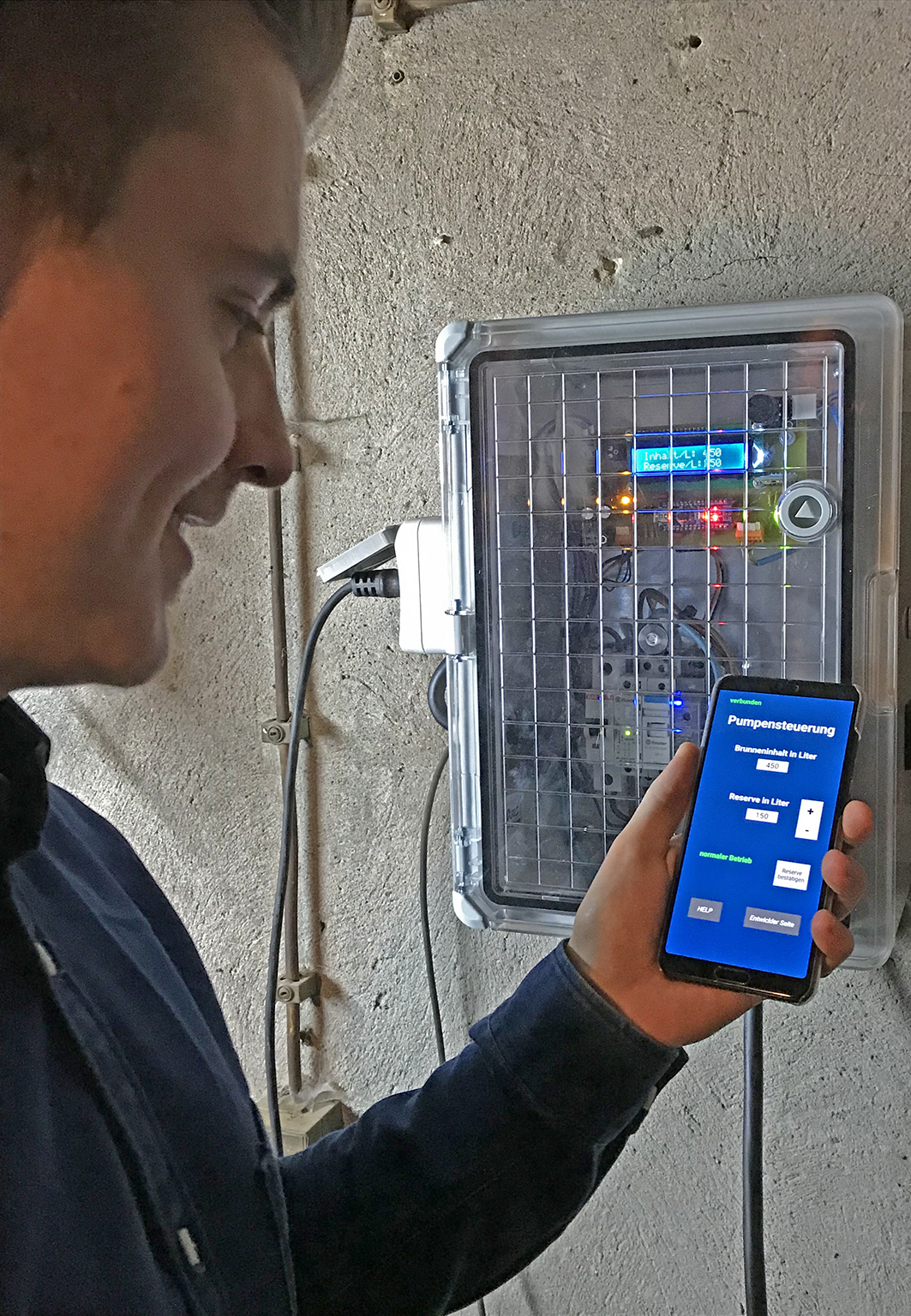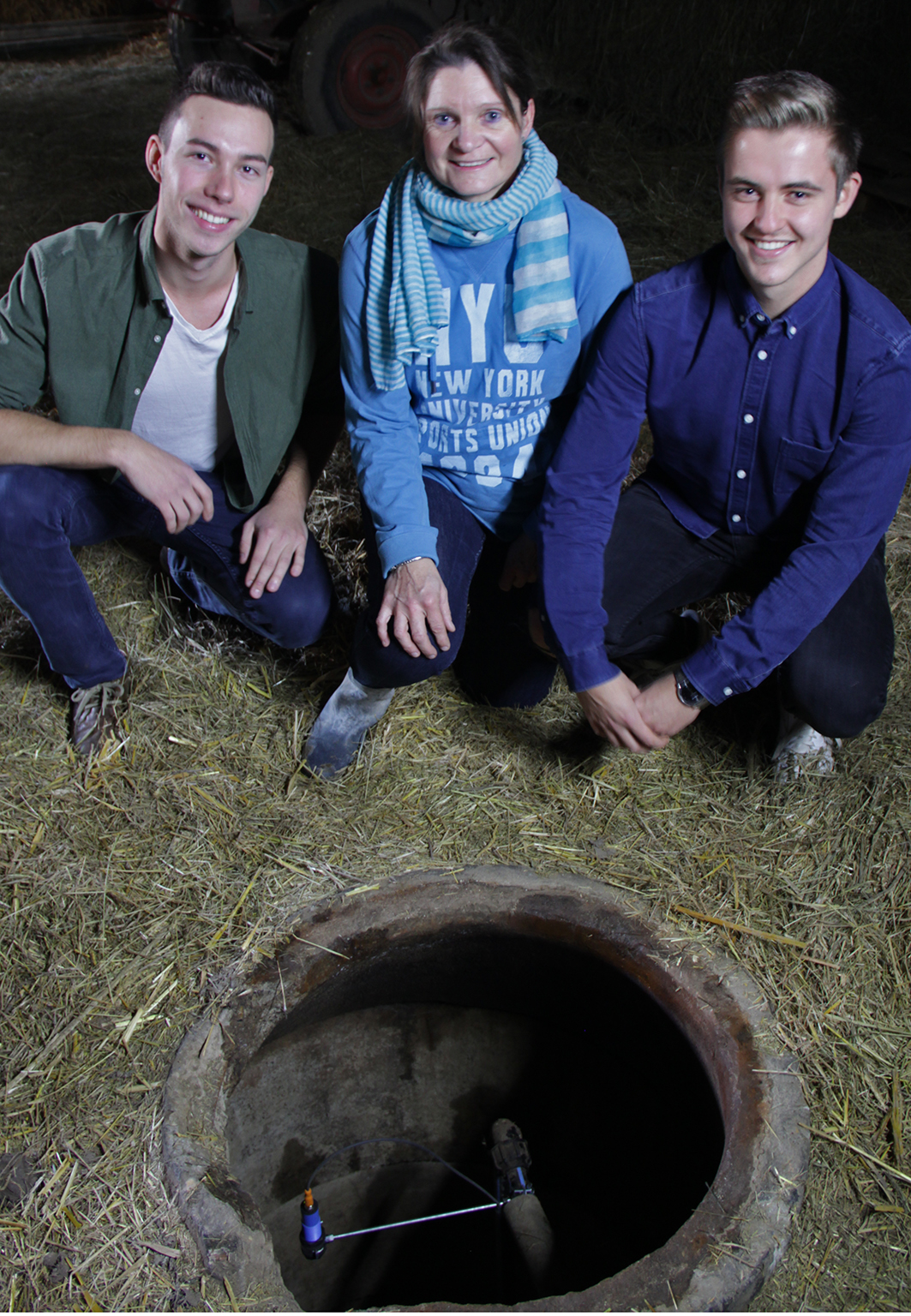Students at Karlsruhe University of Applied Sciences develop app for safe water supply of an equestrian farm
Using a self-developed control system and app, adjacent fields and the horse watering troughs are sustainably supplied with well water
December 13, 2019
How can it be ensured that the horses on an equestrian farm in Lustadt, Palatinate, always have enough water in the watering troughs in summer? Tom Bartl and Jannik Herrmann, both fifth-semester students at the Faculty of Electrical Engineering and Information Technology at Karlsruhe University of Applied Sciences - Technology and Economics, dealt with this question in a project work.
The initial situation: the supply of the animals as well as the irrigation of the riding facility and the adjacent fields are carried out via a well. The connected pump had to be switched on and off manually via a switch. There was always a risk that too much water would be used for the fields and that there would not be enough left for the horses, with one horse needing about 60 to 100 liters of water per day. In addition, the water level could fall below the pump's intake pipe, causing it to run dry and be damaged.
In their project work, the two students therefore dealt intensively with the safety shutdown of a suction pump. They developed a control system that can be operated both manually and via a smartphone app they programmed themselves. "The main focus when designing the system was simple commissioning and operation," explains Tom Bartl. "In addition, the entire system had to be safe, robust and insensitive."
In the well shaft in a hay-covered barn floor, the students installed an ultrasonic sensor for this purpose, which measures the distance to the water surface and thus the filling level. Shut-off systems for such pumps already exist. However, these only provide simple monitoring of the level and switch them off as soon as the water falls below a fixed level. If the level is to be changed, this is a time-consuming process. For this reason, the new control system has a variable limit value for the level. "To enable operation from outside the plant room and to meet today's state of the art, the control system can be operated not only via buttons on the housing, but also via a smartphone," explains Jannik Herrmann.
In addition, it offers the possibility of setting a reserve value - for the water required by the horses. If this is fallen short of, the control system aborts the pumping process and can only be reactivated by the user. The values for fill level, reserve and acknowledgement by the user can be read directly on the control or via the app. In addition to the sensor in the shaft, a microcontroller board was also required for the implementation, which is used for measured value acquisition, control and communication between the microcontroller and peripherals.
Even with electronic control systems, a component can fail. To ensure that the water supply is then only interrupted for as short a time as possible, care was taken to ensure that individual components can be replaced as easily as possible.
"Creating the app was the biggest challenge in our project," the two students agree, "because we had never programmed one like it before. Besides that, we were able to practically apply and implement a lot of what we heard in the lectures." And of course they can also be a little proud, says Belal Said, academic staff member and supervisor of the two students, "because the pump control will support the equestrian farm quite significantly in the everyday calculation of the water balance for animals and fields."
And the responsible professor for automation technology and dean of studies of the faculty, Prof. Dr. Manfred Strohrmann, is also satisfied: "With this project, we can once again show the practical benefits of electrical engineering and information technology in society. This also makes our study content and applicability tangible and understandable for everyone."
After the installation was completed and the system tested on site, it could now be officially handed over to the operator of the equestrian farm, Friederike Mrodzinsky.

